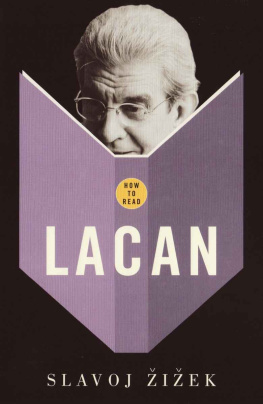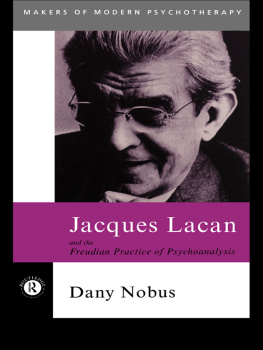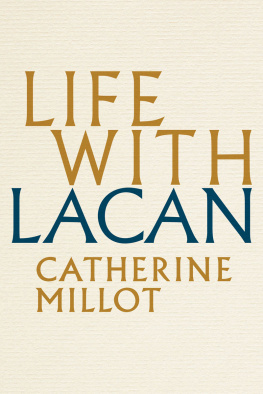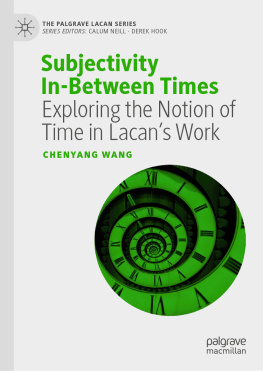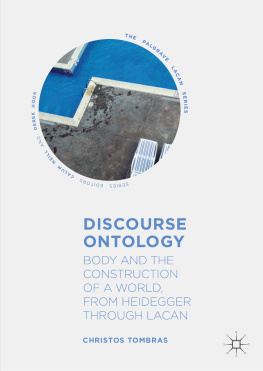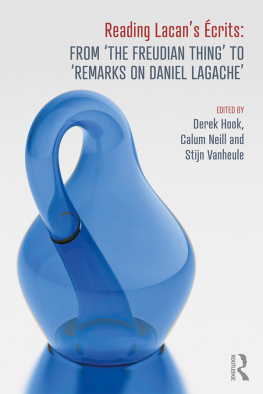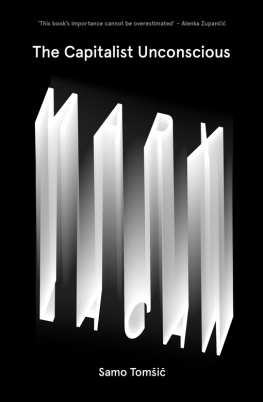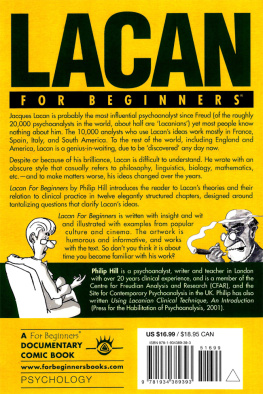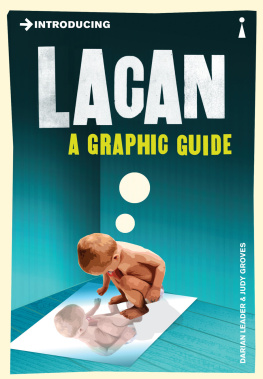Lacan
A Beginners Guide
ONEWORLD BEGINNERS GUIDES combine an original, inventive and engaging approach with expert analysis on subjects ranging from art and history to religion and politics, and everything in between. Innovative and affordable, books in the series are perfect for anyone curious about the way the world works and the big ideas of our time.
aesthetics
africa
anarchism
aquinas
art
artificial intelligence
the bahai faith
the beat generation
biodiversity
bioterror & biowarfare
the brain
british politics
the buddha
cancer
censorship
christianity
civil liberties
classical music
climate change
cloning
cold war
conservation
crimes against humanity
criminal psychology
critical thinking
daoism
democracy
descartes
dyslexia
energy
engineering
the enlightenment
epistemology
evolution
evolutionary psychology
existentialism
fair trade
feminism
forensic science
french revolution
genetics
global terrorism
hinduism
history of science
humanism
islamic philosophy
journalism
judaism
lacan
life in the universe
literary theory
machiavelli
mafia & organized crime
magic
marx
medieval philosophy
middle east
NATO
nietzsche
the northern ireland conflict
oil
opera
the palestineisraeli conflict
paul
philosophy
philosophy of mind
philosophy of religion
philosophy of science
planet earth
postmodernism
psychology
quantum physics
the quran
racism
renaissance art
shakespeare
the small arms trade
the torah
sufism
volcanoes


A Oneworld Paperback Original
Published by Oneworld Publications 2009
This ebook edition published by Oneworld Publications 2012
Copyright Lionel Bailly 2009
The right of Lionel Bailly to be identified as the Author of this work has been asserted by him in accordance with the Copyright, Designs and Patents Act 1988
All rights reserved
Copyright under Berne Convention
A CIP record for this title is available from the British Library
ISBN 978-1-85168-637-7
ebook ISBN 978-1-78074-162-8
Typeset by Jayvee, Trivandrum, India
Cover design by www.fatfacedesign.com
Oneworld Publications
10 Bloomsbury Street
London WC1B 3SR
England
www.oneworld-publications.com
Stay up to date with the latest books, special offers, and exclusive content from Oneworld with our monthly newsleter
Sign up on our website
www.oneworld-publications.com
Illustrations
Acknowledgment
When I asked Sham Ambiavagar to edit this book, it was still in the form of an early draft and much of what I had intended for it was drawn from my years of lecturing on the subject, from my own analysis, and from my clinical practice. Shams questions highlighted occasional weaknesses in the Lacanian edifice or in my understanding of it; however, as a non-clinician, her research was book-based and her understandings derived by a mixture of insight and logic, rather than clinical experience. Her argumentative approach forced me to account for what my years of Lacanian practice revealed of the theory and it seems to me that many of Lacans greatest insights were intuitive and clinically derived, and not logical philosophical constructs. Shams insistence upon attempting a unified theory, whether or not one may indeed be arrived at, has also contributed to the readability of the final product, although I would not wish to pretend that there are no holes in it, which hopefully will continue to attract constructive contributions. In addition, my mother tongue is French and I speak English, while hers is English and she can speak French. We had to negotiate over the meaning of words and the impossibility or unhelpfulness of direct translation. This led us sometimes to unusual ways of translating concepts or fragments of texts, which I think are useful as they preserve the French meaning better than exact translations, which do not work in the spirit of English. Overall, the process of working with Sham was unexpectedly rich and complex and without it this book would not exist.
Introduction
Jacques Lacan was first of all a psychiatrist, and as a clinician, he was more concerned with what he did not know or understand than what he did. His inability to make do with a poor explanation led him to consider and explore all models available to psychiatrists in the first part of the twentieth century. After having worked with some of the most brilliant proponents of organic psychiatry, he found in psychoanalysis the most helpful theoretical model to understand and treat the complex patients he was dealing with. However, Lacan was to become more than just a disciple of Freud: he believed that Freudian theory was not a perfect edifice but a work in progress, and wanted to contribute towards what he saw as a developing model. His attitude towards the development of theory was modern in that he was willing to examine any body of science that could clarify or shed new light on the phenomena he was trying to explain, and consequently, he drew inspiration from biological psychiatry, genetic psychology, and philosophy; later, structural linguistics, anthropology, and even mathematics joined the range of theoretical models he used.
The result was extraordinary, and its richness has attracted students in fields far from psychoanalysis or psychiatry; indeed, although Lacans model is not a philosophical one, it has become most fashionable among students of philosophy: one could go so far as to say that in the English-speaking world, it is largely philosophers and academics in English and Critical Studies departments who have kept Lacanian thought alive. Certainly, in the field from which Lacan himself came that of psychiatry his work is mostly ignored. This may be because philosophers and academics in the humanities are, in one respect, better equipped to deal with his writings than students of psychiatry or psychology: they are better prepared to try to understand a thinker whose productions are sometimes irritatingly obscure. There are three reasons behind the obscurity, which arise mostly from the manner in which Lacanian theory was formulated.
Most Lacanian theory has been gathered from Lacans spoken teachings; his technique was that of the philosophers of the classical world, who expounded and developed their ideas in a discourse with their pupils; he wrote very little for publication. In even the most lucid speaker, transcriptions from speech are often problematic; the speech of a man who engaged his audience by many means other than pure logical exposition becomes quite obscure when written down. In order to make his points, Lacan often relied on dramatic devices (the well-timed pause, the leaving of a half-finished thought hanging in the air ), the impact of his own personality, and perhaps most of all, on the ability of his audience to arrive of their own accord at the desired conclusion (by making the final mental connections themselves, as one should in analysis) and this mode of expression makes frustrating reading. The only writings Lacan can be held responsible for are his
Next page

